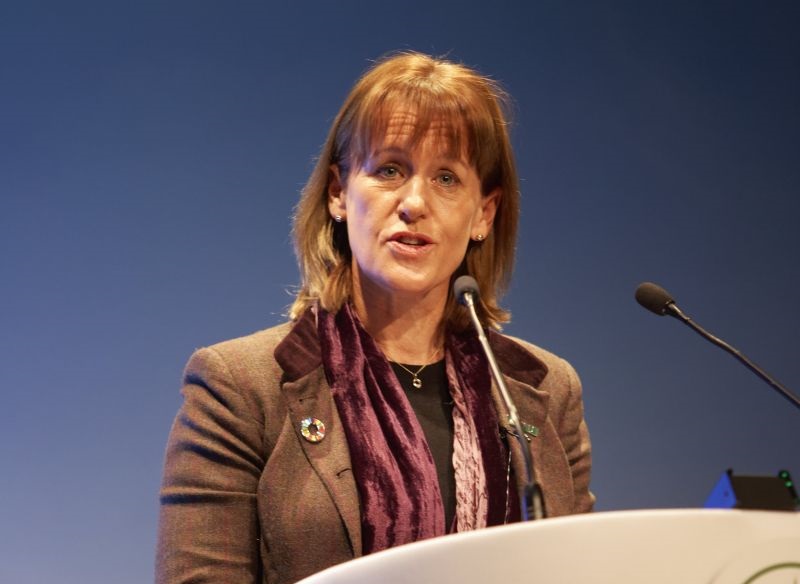NFU president warns of 'massive rises' in input costs

The NFU president has warned of huge cost increases hitting the agricultural sector after the British Free Range Egg Producers’ Association (BFREPA) highlighted a financial squeeze on egg producers.
Minette Batters, president of the NFU, told the Egg and Poultry Industry Conference (EPIC) that farmers were facing a significant financial threat.
“We see massive rises in input costs,” said Mrs Batters speaking during the online conference on Wednesday 17 November.
She said the price of natural gas had now driven up the price of fertiliser, ammonium nitrate, to well over £700 per tonne.
The recent CO2 shortage crisis was also highlighted. “This isn’t just about fertiliser, it is about the absolutely vital, fundamental need for CO2, the by-product of ammonium nitrate.
"We have got short-term measures in place to keep one plant on line, which is, of course, all about CO2 and not fertiliser, but those costs will all be coming back potentially to the consumer.”
All the increased costs were currently being borne by farmers. "When you look at the contracts, I think there are big questions to ask around fair returns for farmers and growers. And, indeed, everybody in the chain," she said.
The British Free Range Egg Producers’ Association (BFREPA) recently said that free range egg producers were being left to pay the bill for the industry’s spiralling costs.
Chief executive Robert Gooch said: “Free range egg producers are always at the bottom of the pile. Everyone else in the supply chain secures their margin by passing the rising costs down the chain, so they inevitably get left at the farmer’s door.
“BFREPA has campaigned for fair, robust contracts to be available which allow for movement in the price paid to farmers as input costs, such as feed, increase and decrease.
“These contracts have been adopted by some retailers and packers but there are numerous examples of these contracts being broken now that inflationary pressures are rising.
“This simply isn’t fair and can’t be allowed to continue,” Mr Gooch explained.
At EPIC, Mrs Batters also highlighted the threat to the farming industry from recent trade deals the UK has agreed with Australia and New Zealand.
UK farm leaders have repeatedly expressed fears that the government could be prepared to allow imports produced to lower standards in order to secure trade agreements with other countries.
Boris Johnson and other members of the government had assured them that they would defend UK farming standards in trade negotiations, but Mrs Batters was highly critical of the agreement with Australia.
“The market is everything and, particularly in the poultry sector, we need markets," she told farmers at the conference.
"Maintaining your position as the number one supplier of choice to the British market place has always been my absolutely core focus."
“So it was an enormous shock, quite honestly that I witnessed what happened with the Australian trade deal and the principles agreed.
"I knew, once those principles had been agreed on Australia, that New Zealand would want exactly the same and that was full liberalisation.
"And this really does set the agenda out for how we will negotiate trade going forwards," the NFU president said.
The other major post-Brexit issue for agriculture - access to labour - was also highlighted at the EPIC conference.
Mrs Batters said the industry was still 'very focused' on the Covid-19 Visa Recovery Scheme.
"The hauliers, of course, got their way and you, the poultry sector, rightly, got your way," she said.
"It was a real relief to see five and a half thousand people put through on a visa scheme.
"The thought of no turkeys at Christmas clearly resonated with this government and it was a huge relief for us all to see that.
"It doesn’t begin or end there. It’s short term help and gratefully received but labour remains a massive challenge right across the agricultural and horticultural sectors.”








